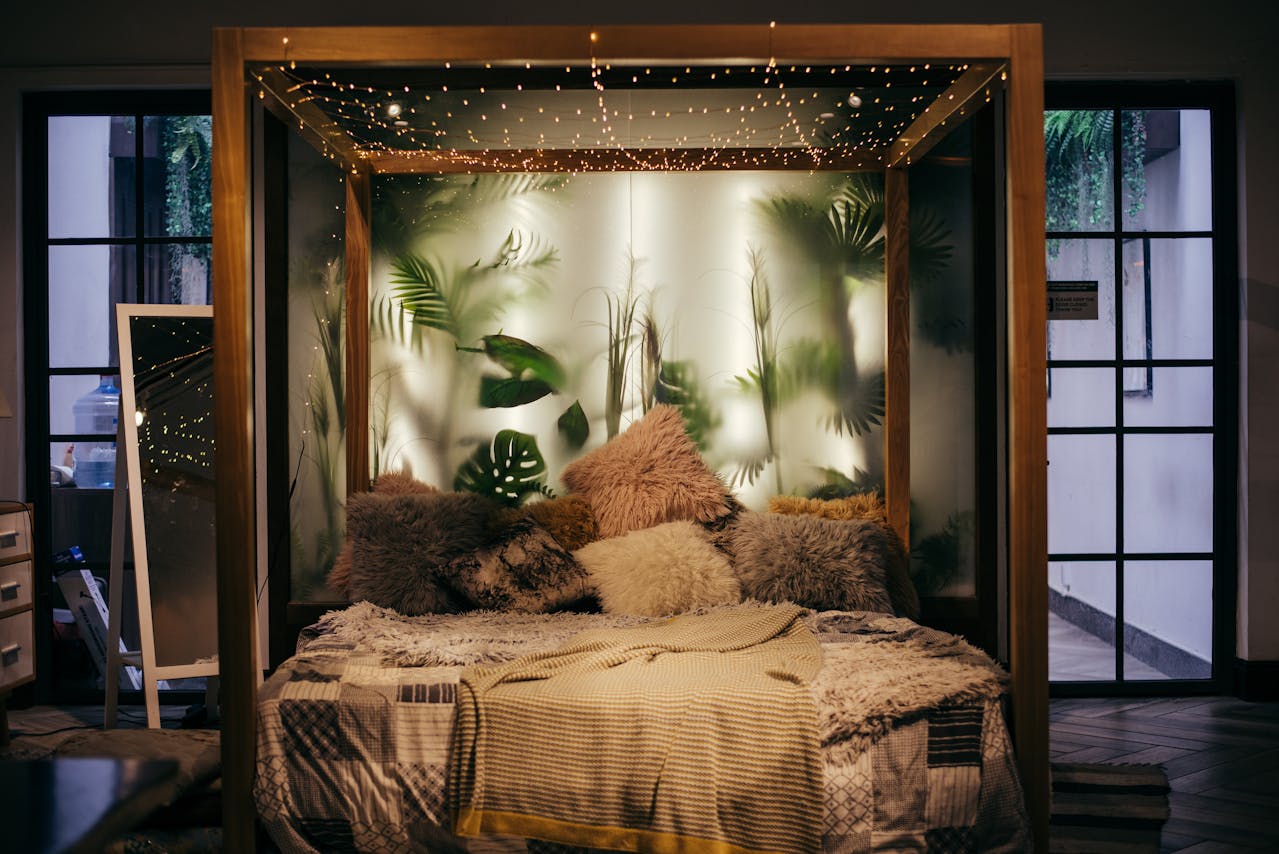Are you feeling restricted by your small bedroom? A lack of space could leave you dreaming of a change in surroundings. But with the average cost of moving home now around £12,000, it pays to make the most of what you’ve got.
Thankfully there are lots of ways to organise your humble sleeping quarters. Discover practical tips that balance aesthetics with comfort and function and could help you rest easier.

Invest in smarter storage solutions
A big challenge in a small room is adding storage without overwhelming the space. The key is to make use of every available nook and cranny – which can mean looking beyond standard options.
Fitted wardrobes are high-impact as they‘re custom-built to the exact dimensions of your room. Unlike freestanding wardrobes, fitted ones reach up to the ceiling, and can be designed with compartments for your needs such as a bolt-on dressing table.
Under-bed storage is another savvy solution for bulky items like bedding and seasonal clothing. Floating shelving and over-door organisers, meanwhile, are great ways to free up floor space.
Declutter regularly
Clutter makes a room feel smaller and can disrupt the sense of calm that your bedroom should evoke. Here are three quick tips for decluttering:
- Consider donating or selling clothes, accessories and other items you don’t use anymore.
- Keep surfaces like bedside tables and dressers mostly clear, reserving them for essentials such as a lamp or a few decorative items.
- Regularly review your room’s contents to keep your space organised.
Choose colour and décor wisely
The right colour palette can make a world of difference in how a bedroom feels. Lighter colours such as whites, greys and pastels reflect natural light and create the illusion of extra space.
However, this doesn’t mean that your room should be devoid of personality. Accent walls or pops of colour such as art, pillows or bedding can add interest without being overwhelming.
When it comes to decor, opt for multi-functional furniture. For example, a small desk can double as a dressing table. Mirrors are another great tool for creating the feeling of more space as they also reflect light.
Consider lighting
Lighting is pivotal in how any room looks and feels. Maximise natural light wherever possible, avoiding heavy curtains that block too much daylight.
For artificial lighting, think in layers. Mix overhead, task and ambient options to create a warm atmosphere. Wall-mounted or pendant lights are alternatives to bedside lamps, freeing up space on tables.
Alternatively, you could consider a smart lighting system to easily adjust brightness and colour temperature, ensuring your room feels cosy in the evening and energising in the morning. They could help you save energy and money too.
Organising a small main or guest bedroom may seem challenging. But with a thoughtful approach to the factors outlined here, it’s totally possible to transform the space into a comfortable, functional retreat.

